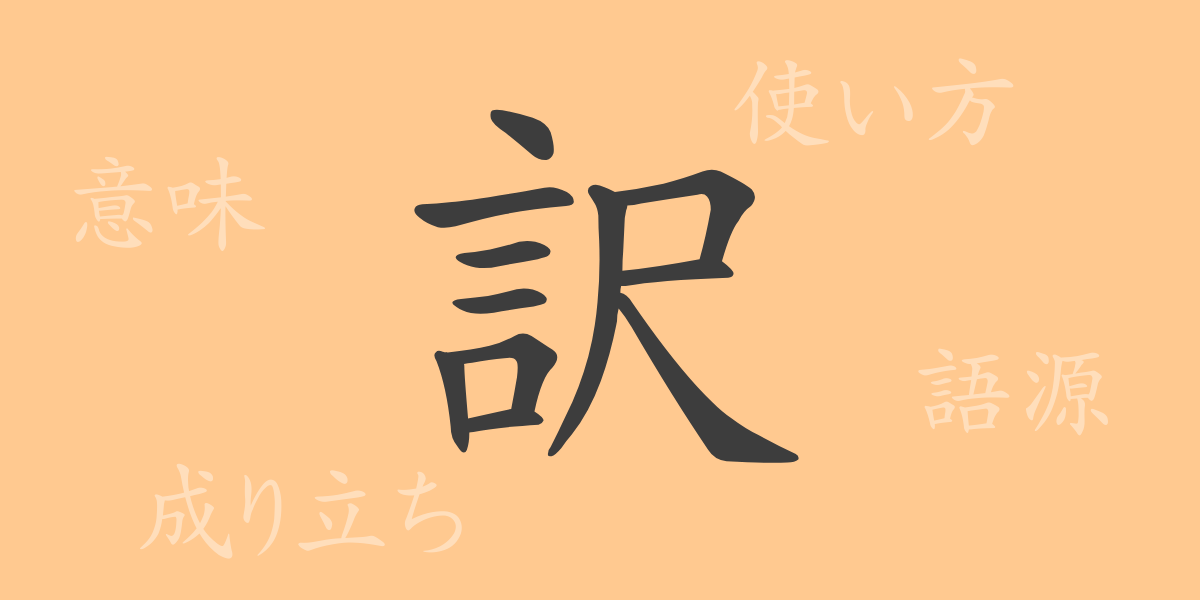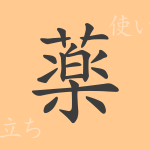The beauty of the Japanese language lies in its richness of expression. The depth of meaning in a single kanji and the diversity of words that use it reflect a unique aspect of Japanese culture. This time, we spotlight the commonly used kanji ‘訳’ (yaku), delving into its origins and modern usage. In this article, let’s step into the world of the kanji ‘訳’ (yaku) and explore its charm.
The Origin of ‘訳’ (yaku)
The kanji ‘訳’ (yaku) has been used in China since ancient times, originally meaning “to convey a message clearly.” As indicated by the radical ‘言’ (gen), it represents matters related to words. Additionally, ‘射’ (sha) originally means to shoot an arrow, but here it symbolizes conveying a message accurately. Over time, this kanji was introduced to Japan and developed uniquely.
Meaning and Usage of ‘訳’ (yaku)
The kanji ‘訳’ (yaku) has multiple meanings and a wide range of uses. Primarily, it means “circumstances” or “reason” and is used to explain something. It is also used in actions like “translation” (翻訳 hon’yaku) and “interpretation” (通訳 tsuuyaku), which involve converting words into another language. In Japanese, expressions that include this kanji are abundant and frequently encountered in daily conversations and business settings.
Reading, Stroke Count, and Radical of ‘訳’ (yaku)
The kanji ‘訳’ (yaku) has several characteristics in its form and sound.
- Reading: On’yomi (音読み) is ‘ヤク’ (yaku), Kun’yomi (訓読み) is ‘わけ’ (wake)
- Stroke count: A total of 11 strokes
- Radical: 言 (ことばへん kotobahen)
Idioms, Phrases, and Proverbs Using ‘訳’ (yaku)
Idioms, phrases, and proverbs that include ‘訳’ (yaku) play an important role in Japanese. For example, ‘訳あり’ (wakeari) means having some circumstances, and ‘訳が分からない’ (wake ga wakaranai) refers to a state of confusion and not understanding the situation. Additionally, ‘意味深長’ (imishinchou) signifies having a profound hidden meaning, and the proverb ‘釈迦に説法’ (shaka ni seppou) mocks the act of explaining something to an expert in that field.
Conclusion on ‘訳’ (yaku)
The kanji ‘訳’ (yaku) holds deep meaning within its simplicity and symbolizes the richness of Japanese expression. This commonly used kanji in daily life is essential for conveying the circumstances and reasons behind words. Through this exploration, we hope to help you understand the diverse aspects of ‘訳’ (yaku) and enjoy richer Japanese expressions.

























